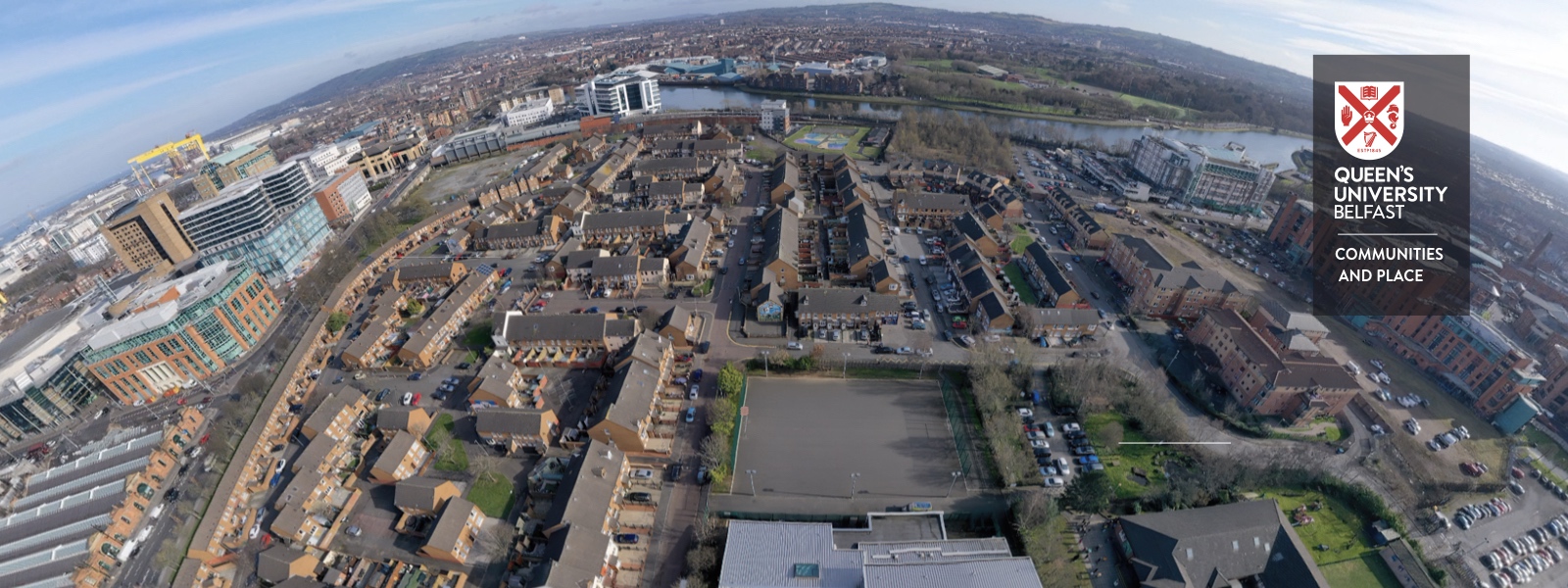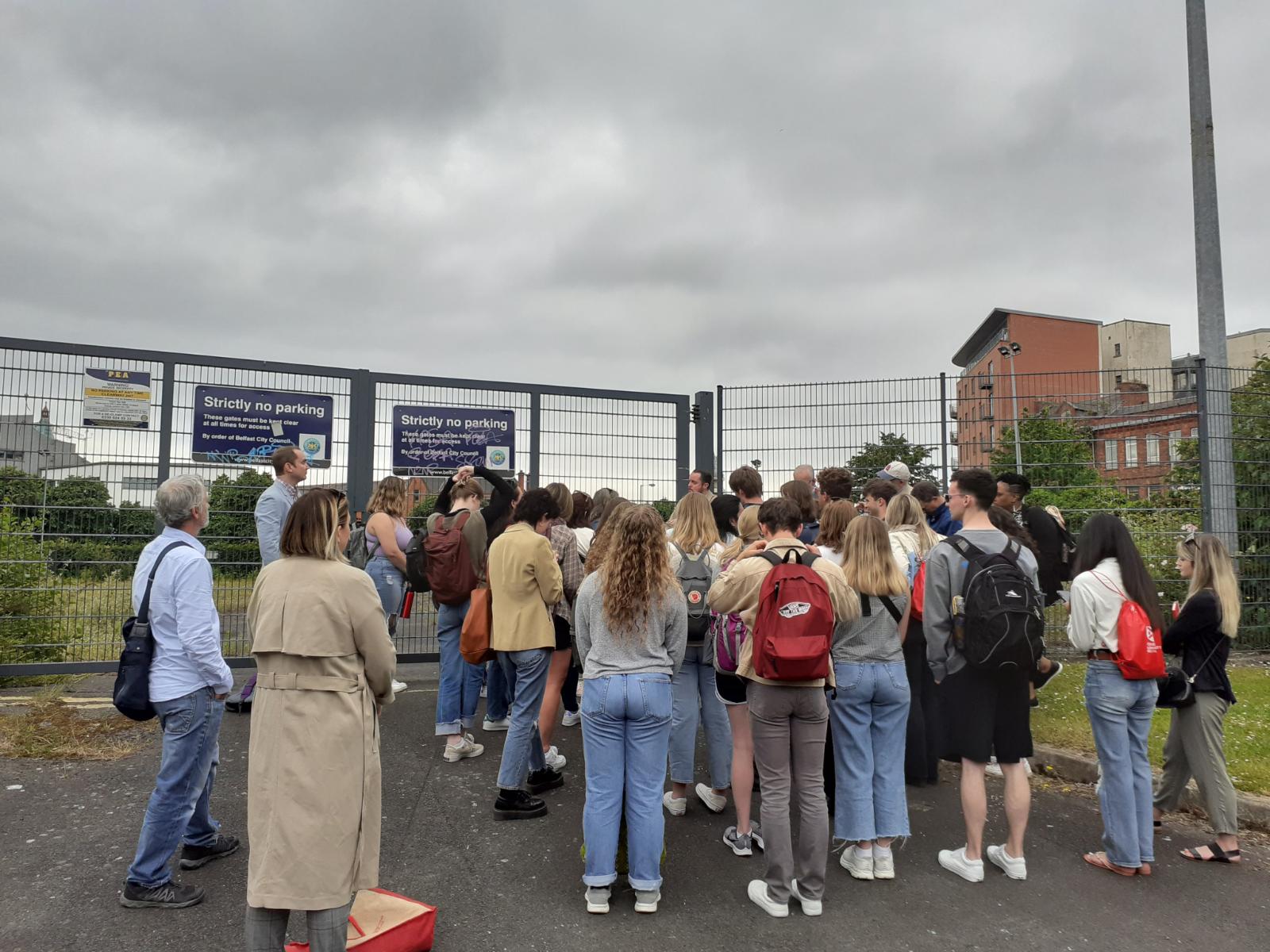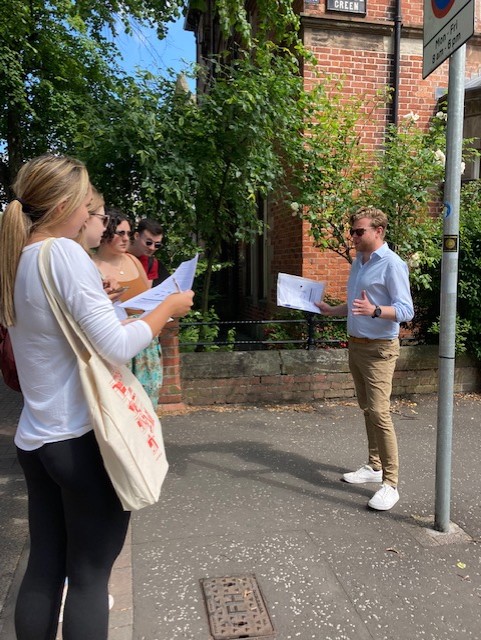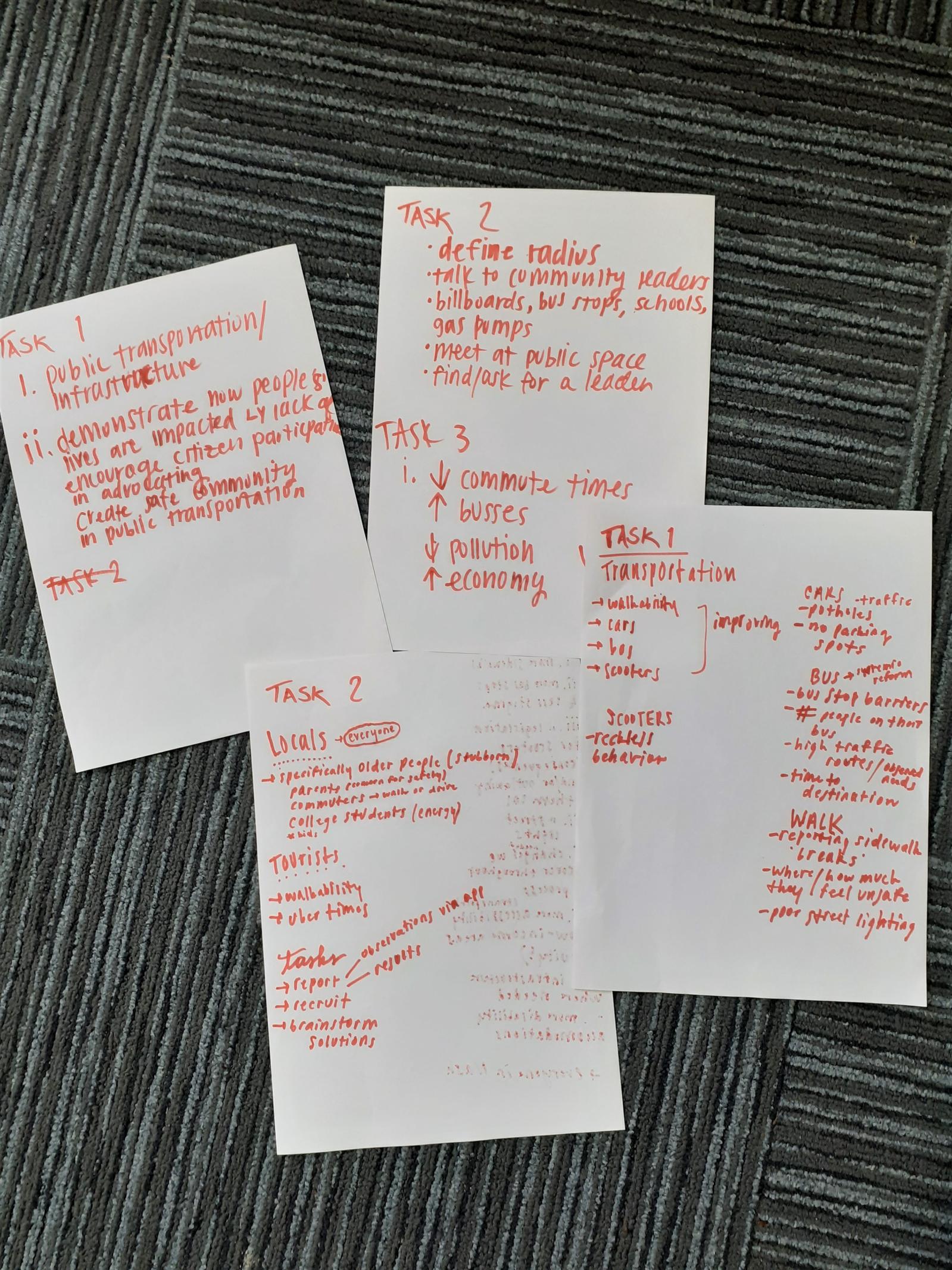Exploring Themes Of Community Development With Students From Belmont University
For two days in June, QCAP welcomed a group of undergraduate students from Belmont University, Nashville, USA.
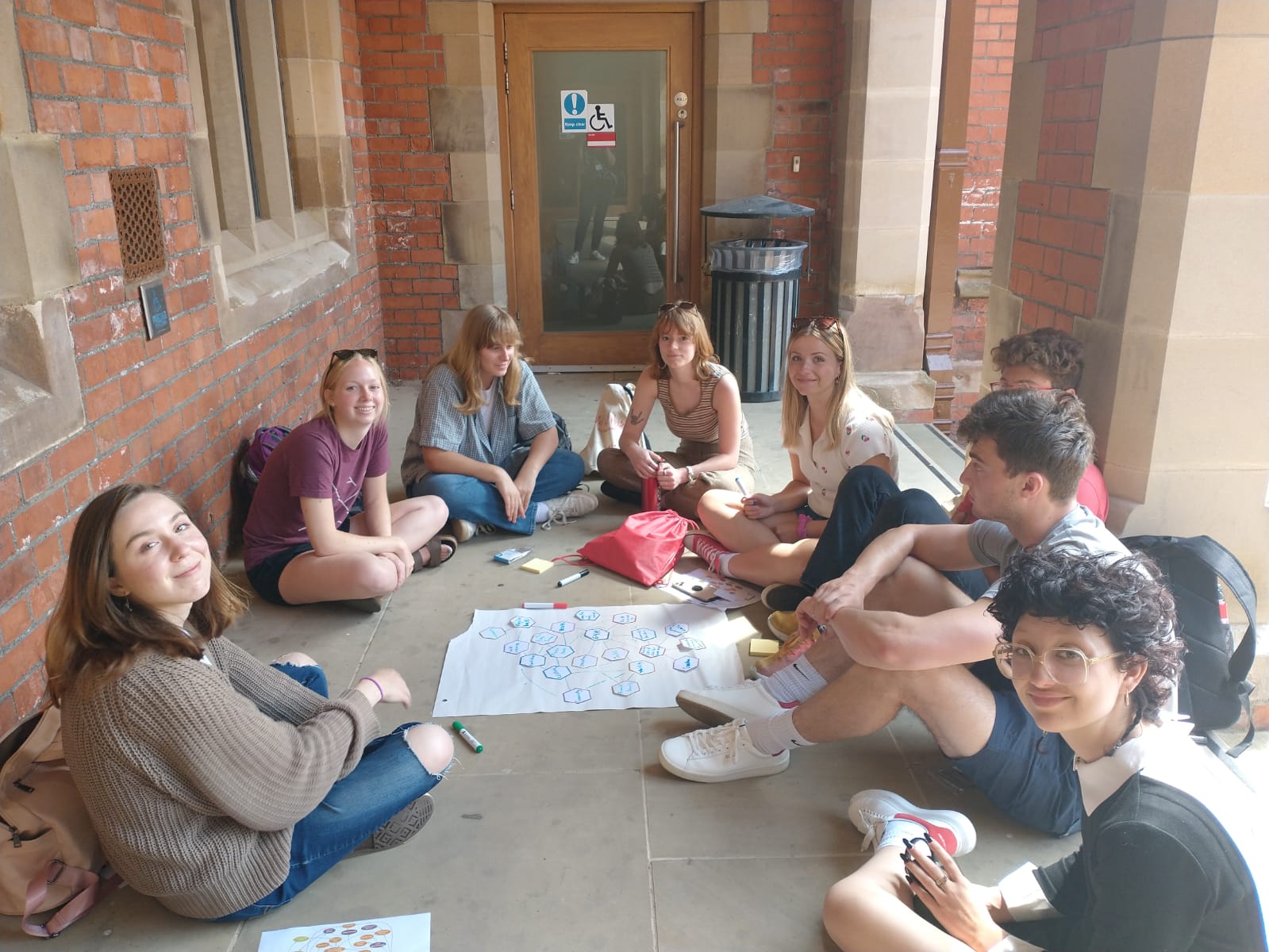
The group comprised students from a range of disciplinary backgrounds, including medicine, law, natural sciences, and the arts. Keen to enhance their understanding of civic participation, the students engaged with several activities and helped to co-create ideas on how to support inclusive and sustainable community development.
Understanding the challenge of community development
The opening day began with an introduction to the group from QCAP director, Professor Kathryn Higgins, who outlined the objectives of the programme and shed light on community partnerships in Northern Ireland. The students then participated in a walking tour of the Market area of Belfast, hosted by QCAP’s partner organisation, the Market Development Association (MDA).
Fionntán Hargey, the MDA’s project and community leader, led the tour and introduced students to the major social challenges facing the Market community. These include poverty, low levels of educational attainment and overdevelopment. The students learnt how local community members have come together to tackle these issues and how their partnership with QCAP is supporting positive change for the area.
The walk sparked interesting debates about cultural heritage, the political dynamics of social engagement and, in particular, how vacant land should be used. Much of the available land in the Market is prime for real estate opportunities, yet the students rightly questioned if private investment necessarily equates to development that helps or hinders local communities. Fionntán Hargey clarified how establishing an equitable balance between these potential outcomes is a major motivation for the MDA’s campaigning.
Some students openly discussed how they saw similarities between the Market and their own communities. This became particularly clear during conversations on the exclusion of marginalised groups in civic participation processes and the challenges of generating social return on community investment.
Co-creating innovative approaches to community action
Following an immersive day learning about social challenges and common threats to civic engagement, day-two began with an open discussion about the meaning on the term ‘community’. Dr. Gareth Robinson, a researcher at QCAP, presented on the philosophical underpinnings of how community has been framed in academia and asked students to consider the different communities that they are a part of.
The students were then divided into several working groups, each led by a member of the QCAP team. The groups examined different examples of how research can work with community members to find solutions to the persistent challenges that hinder social advancement.
Dr. Andrews Grounds led a team of students on a walking tour of the Queen's Quarter, where they conducted an urban legibility analysis and explored tools for understanding the meaning of 'place'. The tour also involved an assessment of how local social enterprises are creating alternative approaches to economic inclusion and local development.
An innovative workshop titled 'Work and Care: Squaring the Circle', hosted by Dr. Grace Kelly, helped students to understand the challenges facing care givers. The session brought together ideas on how the needs of vulnerable and under-supported community members can be managed. Students who participated in the workshop spoke of how they learnt of the value of place-based approaches to finding solutions to local, family-related challenges.
Led by QCAP researcher Dr. Emma Loudon, a further group of students took part in an integrated session on the topic of family and community. This session asked students to consider communities as systems, with each part affecting multiple other parts. Using a hexagonal thinking exercise, the students considered the potential impact of some hypothetical scenarios that might affect communities and the individuals and organisations within them.
A final group of students took part in an interactive session on the participatory research approach of citizen science. Facilitated by Dr. Ben McAteer, the workshop explored how communities can help to instigate transformative change by engaging with scientific processes. By pinpointing problems facing their communities, students designed their own citizen science projects and considered how they could empower communities to tackle a range of socio-environmental problems.
Learning lessons and future opportunities
To complete the two-day visit, students led a reflective talk that tied together the topics explored over the course of the trip. By adding comparative perspectives to the table, the students highlighted how there are an abundance of ideas and approaches that can act as solutions to the many wicked problems that communities face.
We thank Belmont University, Nashville for arranging the visit and for their staff and students for the passion that they displayed to learn more about community and place. The visit helped to spark a range of new ideas that QCAP will take forward in its continued quest to bring about positive change. We look forward to hosting visits with other groups in the future and to arranging next year’s summer school with Belmont University.

